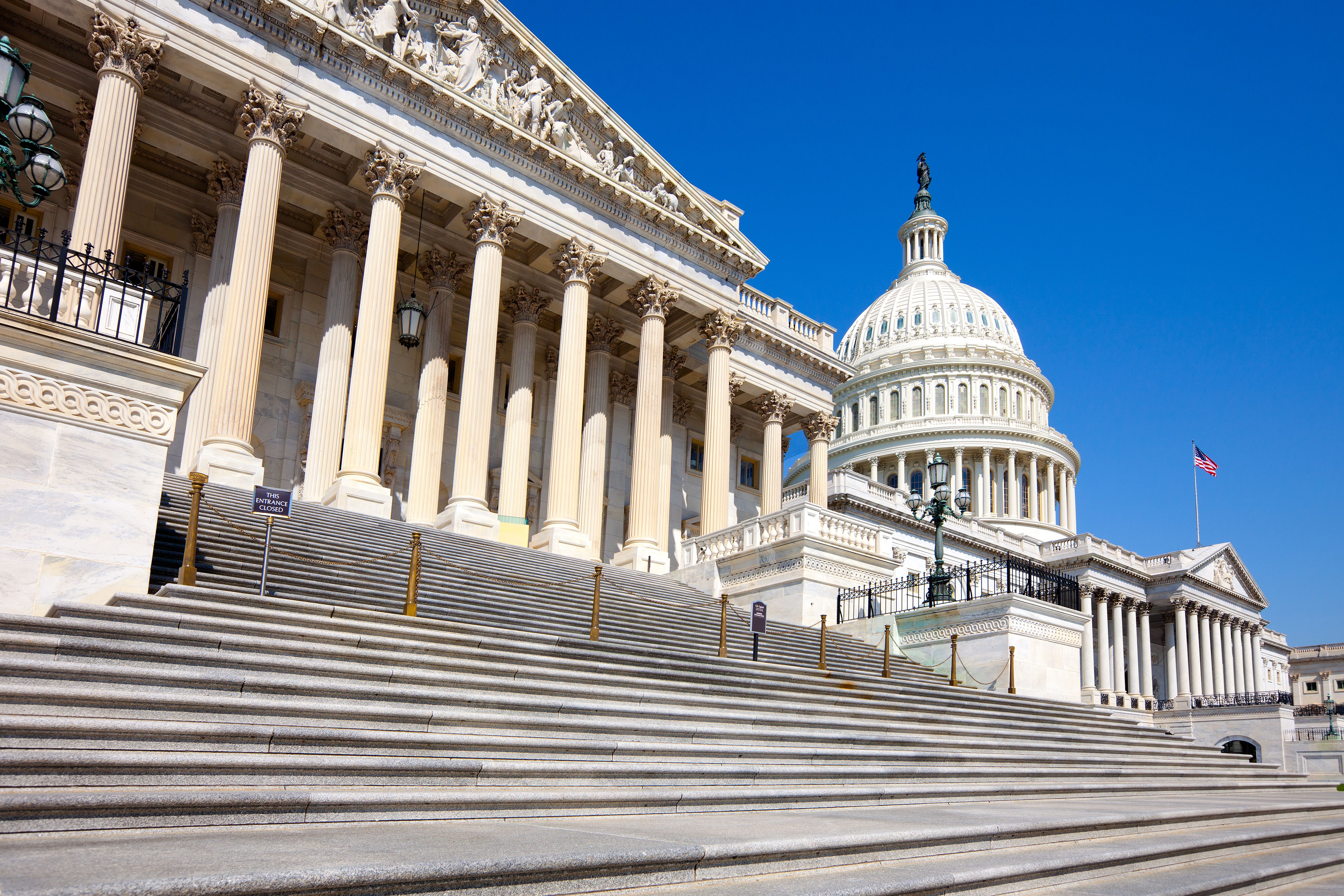Lawmakers aim to block Medicare payment cuts to doctors, but clock is ticking
Healthcare groups are praising a bipartisan measure to avert planned reductions in payments to physicians, which are slated to take effect Jan. 1.
Lawmakers in Congress are working to prevent planned Medicare payment cuts to physicians, much to the relief of a host of healthcare organizations.
Lawmakers in Congress are sponsoring legislation to avert cuts in Medicare payments to doctors; the cuts are slated to take effect next year.

But the clock is ticking.
Republicans and Democrats have sponsored a bill to avoid Medicare’s scheduled reduction in physician payments for 2025. The Centers for Medicare & Medicaid Services have proposed a 2.8% cut in payments to doctors next year.
On Tuesday, lawmakers introduced the legislation, dubbed the Medicare Patient Access and Practice Stabilization Act. U.S. Reps. Greg Murphy, R-N.C., and Jimmy Panetta, D-Calif., are the prime sponsors, but other lawmakers, Republicans and Democrats alike, are backing the measure.
In addition to averting the cuts, the legislation would give doctors increases in payments that are equivalent to half the Medicare Economic Index, which reflects changes in the annual operating costs for physicians.
Bruce A. Scott, M.D., president of the American Medical Association, welcomed the legislative remedy, even as the end of the year draws closer and the cuts are about two months away from taking effect.
Adding to the stress, there’s not many scheduled legislative days remaining on the calendar for Congress. After the election next week, lawmakers will have limited time in what’s known as the “lame duck” period before the new Congress takes office in January. But Scott said he’s encouraged that lawmakers have come together to prevent the cuts from happening.
“Lawmakers must take action during the lame duck session,” Scott said.
Scott said that Medicare payment rates have dropped 29% over the past 20 years, when including the higher costs of running practices. Doctors and their advocacy groups have said the continued cuts in recent years could hurt access to care, as physicians leave the profession or they opt not to accept Medicare patients.
“In medicine, we are accustomed to making rational decisions based on the conditions of our patients,” Scott said. “We are simply asking Congress to do the same.”
Anders Gilberg, senior vice president of government affairs for the Medical Group Management Association, said the organization supports the bill and is hoping urging Congress to return from recess quickly to pass the bill. The organization is also calling for more lasting reforms to Medicare’s payments to physicians, saying the annual cuts are threatening the viability of some medical groups.
“The fact that physicians must rely on Congress each year for a last-minute payment fix underscores just how broken the Medicare reimbursement system is,” Gilbert said in a statement. “Moving forward, Congress must enact permanent, commonsense reforms that enable medical groups to keep their doors open and protect patients’ access to care."
Murphy, who is a doctor, said in a news release that doctors “are at a breaking point and access to high-quality, affordable care is at risk for millions of Medicare patients.”
“Medical inflation is much higher and the cost of seeing patients continues to rise,” Murphy said. “Unfortunately, reimbursements continue to decline, putting immense pressure on doctors to retire, close their practices, forgo seeing new Medicare patients, or seek a less efficient employment position. This bipartisan legislation would stop yet another year of reimbursement cuts, give them a slight inflationary adjustment, and protect Medicare for physicians and patients alike."
Panetta said the bill is needed to give doctors relief from the cuts and a better payment mechanism.
"Medicare payments to physicians are just not keeping pace with our economic realities and the cost of care," Panetta said in a statement. "Our bipartisan legislation would not only prevent harmful cuts but also would adjust provider reimbursements for inflation. Such a law would expand seniors' access to quality healthcare by helping medical providers continue their care for Medicare beneficiaries."
Dr. Shannon Udovic-Constant, president of the California Medical Association, welcomed the legislation.
“Year after year, these cuts threaten patient care and further strain an already stretched physician workforce. It is crucial that we stop undermining health care coverage and instead invest in ensuring seniors have access to health care,” Udovic-Constant said in a statement.
The American College of Surgeons, Federation of American Hospitals, American College of Emergency Physicians, and dozens of other healthcare advocacy groups are supporting the legislation.
Healthcare leaders: Prepare for a very different HIPAA security rule | Viewpoint
April 20th 2025The proposed changes to the HIPAA Security Rule are significant. Executives and boards need to prepare as the days of voluntary compliance end and a new era where leaders are held personally accountable emerges.